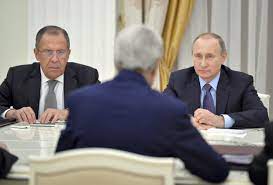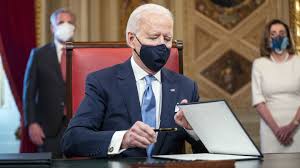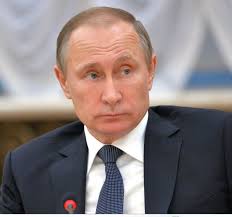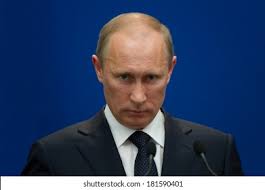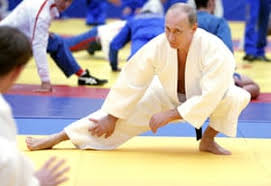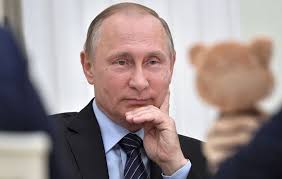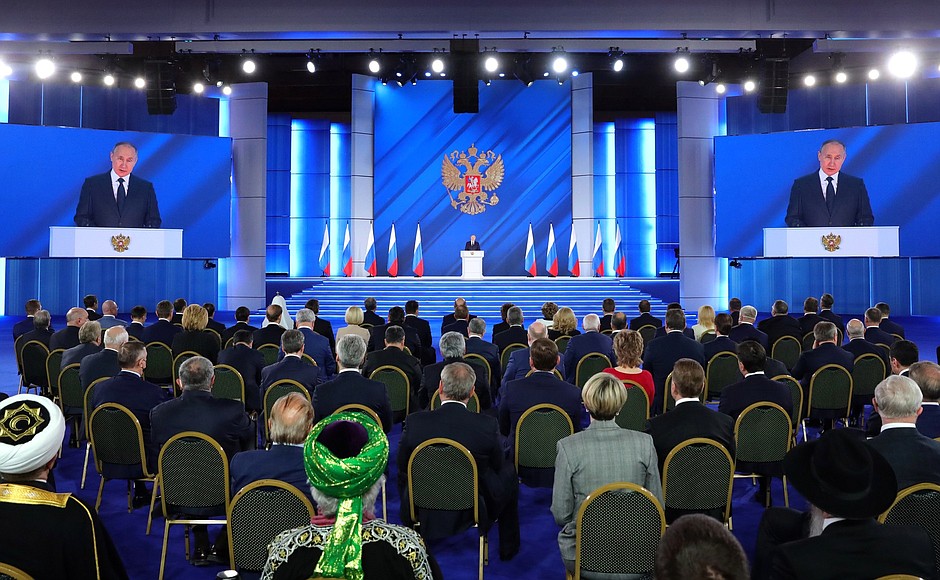
Similar to recent years, Putin’s address to the Federal Assembly was mainly focused on domestic issues. His remarks on international relations/foreign policy were relatively short but robust and appear toward the end of the speech. – NB
Full transcript available here.
…We understand the heavy toll that the pandemic has taken on people’s welfare. Statistics show the aggravating effects of this outbreak on social inequality and poverty. It has been a challenge for all countries around the world – remember, all countries, not only Russia, are experiencing the same consequences. Certainly, we should be primarily concerned about the situation in our own country.
We are now facing price hikes that are undercutting people’s incomes. Some urgent decisions have been made, of course, but we cannot solely rely on targeted and essentially directive measures. We remember potential outcomes. Back in the late 1980s and the 1990s in the Soviet Union, they resulted in empty store shelves. But today, even when the pandemic was at its worst, we did not allow the same thing to happen.
The Government’s goal is to create conditions that will be long-term and which, I want to stress this part, colleagues, can, thanks to market mechanisms (which we have), guarantee the predictability of prices and quality replenishment of the domestic market. Nobody is saying that we will be setting prices from the top. There’s no need to muddy the waters and scare people. There are market regulatory mechanisms and they must be employed – promptly and to the extent required and appropriate to a specific situation in the economy and social sphere. We need to stimulate investment activity by reducing business risks. The two are not mutually exclusive.
Surely, the main goal right now is to ensure that people’s real incomes grow – that is, to restore them and secure their further growth. As I said, we need tangible changes in our fight against poverty.
Before anything else, the Government must provide direct support to families with children who are experiencing hardships. This has been our consistent policy and we will continue to pursue it.
We already have a system of benefits paid to parents of one or two children from the time the children are born and until they reach the age of three. Families with incomes below two subsistence minimums per family member are entitled to such benefits. The average monthly amount paid across the country is 11,300 rubles per child. Seventy-eight Russian regions pay benefits for the third child, also 11,300 rubles on average.
Please note that we are making consistent progress in this area, step by step. Last year, we introduced benefits for children aged three to seven. They range from 5,650 to 11,300 rubles per month depending on the region.
I instruct the Government to develop, by July 1, a comprehensive system of support for families with children. Our goal is to minimise the risk of poverty for such families.
But a number of new decisions need to be taken immediately, already today. It is always difficult for a single parent to raise a child. There are plenty of reasons for that. And this is not about the reasons but about supporting children. It is particularly difficult when a single-parent family is having financial problems, especially when children start going to school and family expenses objectively rise.
In particular, we must support single-parent families, where a mother or a father is bringing up a child alone, and only one of the parents is registered on the birth certificate – sorry to be speaking of such mundane things, but this is a fact of life – or the parents have divorced and one of them has the right to child-support payments. Therefore, as of July 1 this year, all children in such families aged between 8 and 16, inclusively, will receive a benefit. The national average of such benefit will be 5,650 rubles.
Of course, we must also help women who are expecting a baby and who have financial problems. It is extremely important for a mother-to-be to get support from the state and society, so that they can keep their pregnancy and know that they will receive help in raising and bringing up their child.
I propose approving a monthly subsidy for women who register at a maternity centre during early pregnancy and who have financial problems. The average subsidy for them will be 6,350 rubles a month.
Next, the sick pay for taking care of a child who falls ill depends on the employment record, which is correct, on the whole, and fair. However, young women receive much smaller sick leave payments. We have discussed this issue at the State Council, and it has been raised by the United Russia. We need to adopt legal decisions on this matter without delay, so that payments for taking care of a sick child aged up to 7 years inclusively are approved at 100 percent of the parent’s salary as soon as this year.
You understand what this means. The majority of those in this room know that the longer the employment record the larger the sick pay. Women who have a long work record usually receive full sick pay, but they usually do not have children at their age. Those who have children do not receive full pay. We must definitely help those who are expecting a baby.
I would also like to remind you that we have expanded and extended the maternity capital programme up until 2026. This benefit will now be paid already for the first child. We could not afford this before. The maternity capital has been adjusted to inflation and is almost 640,000 rubles
Free hot meals for all primary school children were approved as of January 1, 2020, and this measure has become a great help for families.
I would like to point out that all our decisions were designed to support our people. I know that many and very many people have financial problems now. The labour market and real disposable income of the people will be certainly restored, and we will move on. This has not happened yet. Therefore, I suggest approving one more one-off payment for the families that have school children, namely, 10,000 rubles per schoolchild. Moreover, this payment will also be made for the children who will only start school this year. We will transfer the money in mid-August, so that parents can get their children ready for school.
The updated Constitution of Russia includes clauses on demographic development, and protection of the family and childhood. They should be implemented in practice at all levels of government. I propose including a section aimed at supporting young people in each national project.
Friends,
During the pandemic, many young doctors and nurses, recent graduates as well as residents and students of medical universities worked courageously in the so-called red zones, joining their senior colleagues. In that extraordinary situation, teachers, schoolchildren, college and university students continued to teach and study, to have exams. Young family members supported their parents and older relatives. The youth of Russia proved to be extremely worthy during that period of trials. We can be proud of them.
We will do everything to open up as many life opportunities as possible for the younger generation. Their journey certainly begins at school, and I am sure that school will always be a second home for children; a new home, comfortable and modern.
Under the existing federal programme and with additional resources provided by the VEB Development Bank, we will build at least 1,300 new schools for more than a million children by the end of 2024. We will also purchase at least 16,000 school buses over the next four years. All school buses must be modern and safe.
Classroom teachers have been receiving a monthly addition to their salaries since last year. A very necessary and, I am sure, fair decision. I remember how we held discussions on this matter last year.
However, I have received requests, letters from teachers in secondary vocational institutions who say they have been forgotten. This is actually true. Justice must be restored. We have to fix this and establish the same additional payment of 5,000 rubles for supervisors of educational groups at technical schools and colleges.
I propose allocating an additional 10 billion rubles in the next two years for major repairs and technical equipment of our pedagogical universities. I ask the Government to pay close attention to up-to-date training of future teachers. The future of Russia largely depends on them.
Furthermore, school teaching teams should be expanded with teaching assistants, mentors and counsellors, whose job will be to organise exciting projects for children at schools.
It is very important that our young people should look to and be inspired by the achievements and victories of our outstanding ancestors and contemporaries, by their love for our Motherland and aspiration to make a personal contribution to its development. Children should have the opportunity to explore the national history and the multinational culture, our achievements in science and technology, literature and art in advanced formats. You know, I still open certain school textbooks occasionally and am surprised at what I see there – as if what is written there has nothing to do with us at all. Who writes such textbooks? Who approves them? It is unbelievable. They mention everything, the ‘second front’ and a lot of other facts, but not the Battle of Stalingrad – how is that possible? Amazing! I do not even want to comment.
I propose allocating an additional 24 billion rubles within the next three years to renovate cultural centres, libraries and museums in rural areas and small historical towns. This is another crucial area.
It is important to resume the activities of the Knowledge Society – we all remember well what it is – based on a modern digital platform. It seems to have been operational lately, but no one seems to notice it is there, either. Also, in order to support projects in culture, art and creative activities, we will set up a Presidential fund for cultural initiatives. Already this year, we will use its competitive grants to finance over 1,500 creative teams.
Colleagues,
A month from now, 11th grade students will be taking exams. Based on the results, most of them, about 60 percent, will enrol in universities and have their tuition covered from the budget. It can be safely stated that practically no country in the world apart from Russia has this kind of broad and free access to higher education.
In the next two years, we will make an additional 45,000 state-funded places available at our universities. At least 70 percent of them will go to the regions which need university graduates.
Starting this year, at least 100 universities in the constituent entities of our Federation will receive grants in the amount of 100 million rubles or more for opening student technoparks and business incubators, upgrading academic and laboratory facilities, and running training programmes. All state universities will be eligible for this support, including the ones that train future teachers, medical doctors, transport and culture workers. I am confident that the young generation of Russians, Russian scientists, will make their names known in the meaningful research projects that are yet to come.
This year was declared Science and Technology Year in our country. We realise that science is absolutely key in the modern world. Until 2024, Russia will allocate 1.63 trillion rubles from the federal budget alone for civil, including fundamental, research. But that is not all.
We are about to launch ground-breaking programmes in areas that are critical to our country. They will be given the status of nationwide projects. I would like to discuss some of them separately just to give you a sense.
First, we must have a solid and reliable shield to give us sanitary and biological safety. We now understand what it is about. It is imperative to ensure Russia’s independence in the production of the entire range of vaccines and pharmaceutical substances, including medications against infections that are resistant to the current generation of antibiotics. Importantly, this must be achieved with the maximum engagement of Russian-made equipment and domestic components.
In the event of an infection as dangerous as the coronavirus, or, God forbid, even more dangerous, Russia must be prepared to develop its own test systems within four days, precisely four days, and to create an efficacious domestic vaccine and start its mass production as soon as possible. These are the goals that we are setting for ourselves. The timeframe for achieving these goals is 2030. But the sooner we get there, the better.
Second, we need new comprehensive approaches to the development of our energy sector, including new solutions for nuclear generation in the promising areas of hydrogen energy and energy storage.
Third, we must find answers to the climate change challenges, adjust our agriculture, industry, the housing and utilities sector and the entire infrastructure to them, create a carbon utilisation sector, bring down emissions and introduce strict control and monitoring measures.
Over the next 30 years, the cumulative emissions in Russia must be smaller than in the EU. It is an ambitious goal, considering the size of our country and the specific features of its geography, climate and economic structure. However, I have no doubt whatsoever that it is a perfectly realistic goal in light of our research and technological potential.
Our new energy and pharmaceutical sectors and the solution of climate problems must provide a powerful boost to a comprehensive modernisation of all economic sectors and the social sphere. It is a direct path to the creation of modern and well-paid jobs.
The efforts taken by each level of government, business, development institutions and the Russian Academy of Sciences must have in view the main, central task: to improve the quality of life for our people. I would like to point out that our position on environmental protection is a matter of principle in this respect, and it will definitely remain unchanged.
The dangers of the alternative position have been recently exemplified by the events in Norilsk, Usolye-Sibirskoye and several other places. We will certainly help the people who live there, but we must also preclude a repetition of such environmental disasters.
I would like to ask those responsible to accelerate the adoption of a law on the financial responsibility of enterprise owners for clearing up the accumulated pollution and for the reclamation of industrial sites. This is a very simple approach. Here it is: if you have benefited from polluting the environment, clean up after yourself. We must act harshly. Rosprirodnadoz [the Federal Service for Supervision of Natural Resources] and other regulatory authorities must do their jobs.
I would like to add that the “polluter pays” principle must also be employed in full in the waste disposal sector to ensure transition to the so-called closed-loop economy. With this aim in view, we must launch a mechanism of extended producers and importers’ responsibility for the management of products and packaging wastes as soon as this year.
I also propose marking environmental payments to the federal budget. I know that experts and financial specialists do not like such special marks, but I see this as a vital sphere of our activity. We can make an exception in this case, and invest these funds in clearing up accumulated pollution and improving the environment.
Also, as I said, the amount of hazardous emissions in Russia’s 12 largest industrial centres must be reduced by 20 percent by 2024. We have already discussed this. Obviously, this goal must be accomplished through a comprehensive modernisation of the industrial sector, the housing and utilities sector, transport and energy.
Moreover, I propose expanding the emission quota system to all Russian cities with major air quality problems and introduce strict liability for non-compliance with environmental regulations. Of course, this requires transparent monitoring.
We will definitely support the efforts of businesses to upgrade their facilities up to current environmental standards. For example, upgrading will begin this year at aluminium plants in Bratsk, Irkutsk, Krasnoyarsk and Novokuznetsk based on the state guarantee mechanism. I will later name other cities and towns in other contexts but it does not mean that our work is limited to those areas. They only serve as examples.
Colleagues,
Last year, we allocated unprecedented resources for supporting the economy. Among other things, we managed to preserve over 5 million jobs through subsidised loans for wage payments. I want to stress that this programme succeeded but it succeeded precisely because businesses acted responsibly and did everything they could to keep their employees. We could see that.
Unfortunately, it was not possible to prevent layoffs completely. I understand how hard it is for those who lost their jobs. The Government was instructed to ensure that the labour market recovers by the end of the year. Still, this problem must be solved sooner so that people can have a stable income again. The Government will be encouraging entrepreneurial initiatives and stimulate private investments that create new jobs.
As you know, last year, social insurance contributions for small and medium-sized businesses were reduced by half, from 30 to 15 percent. This decision will remain in force permanently and is not subject to review.
I instruct the Government to present, within the next month, additional proposals on supporting small and medium-sized businesses, such as tax incentives, accessible loans and expanding product distribution and sales, including to major state-run companies.
As for other decisions in the economic sphere, I would like to mention the following.
First, we have already scrapped many archaic norms and requirements in construction and other fields and discontinued many unnecessary control inspections, but we also need to increase the momentum to achieve substantive, clear and tangible results in improving the business climate. For example, building a turnkey factory in Russia should be faster, more economically efficient and easier than in other regions of the world, including countries with developed economies.
Furthermore, we need to simplify the working conditions for non-commodity exporters. We have certainly been pursuing this policy line for a few years now, but we still need to remove all excessive restrictions in forex control for these exporters. This is one of the problems. The new procedure should start functioning in July. We have discussed this matter more than once. All amendments to the legislation must be adopted as quickly as possible during the spring session.
Secondly, the talent of an entrepreneur is primarily the talent of a creator, an aspiration to change life for the better, to create new jobs. The state will definitely support this attitude.
In the modern world where the market situation sometimes changes almost every day, businesses have to deal with high risks, especially when investing in long-term projects. To address this, we will be adjusting the entire private investment support system. We will evaluate how effective the projects are by the new products, services, and technologies they provide people with and how they improve the potential of Russia and each individual region.
The Special Investment Contract mechanism has already been improved; we have implemented a new instrument – Investment Protection and Promotion Agreements. We have consolidated development institutions on the basis of VEB. Their job is to reduce the risks for investing private capital, to help in the creation of new markets and investment mechanisms, the same as with the Project Finance Factory mechanism already in place. It is currently supporting more than 40 commercial projects with a total investment of 3 trillion rubles.
I am waiting for proposals from the Government on the implementation of the ideas proposed in March at a meeting with Russian businesses. Colleagues, you are well aware of this.
Third, we are making all major decisions concerning the economy through a dialogue with the business community. This is the practice established over many years. Of course, we have the right to expect that the auxiliary financial instruments and support mechanisms will bring the most desired result, which is converting profit into investment and development.
There is an important thing I want to say although it is nothing new to businesses. They know it already. The corporate sector is expected to make a record profit this year, despite all the problems that we are dealing with. Despite these problems, this is the real picture. We will take note of how this profit will be used and, based on the annual results, we may decide to calibrate the tax legislation. I want to see specific proposals from the Government. Off the record, I should note: some withdraw dividends while others invest in the development of their companies and entire industries. We will be encouraging those who invest.
Last year, we substantially increased budget expenditure while managing to maintain the stability of state finances. The Government and the Central Bank must continue to pursue a responsible financial policy. Ensuring macroeconomic stability and containing inflation within set parameters is an extremely important task. I assume that it will definitely be accomplished.
At the same time, thanks to our budget capacity and our reserves, we can allocate more funds to support investment in infrastructure and provide regions with new development instruments. Launching these instruments will require the law to be amended. I expect that all parliamentary parties – A Just Russia, the Liberal Democratic Party, the Communist Party and United Russia – will uphold these amendments.
In this regard, I want to thank all constructive public forces in the country for their responsible and patriotic attitude during this difficult epidemic. These are not just meaningless words because it was this attitude and its practical significance that helped all of us preserve the balance and stability of Russia’s government and political system. This is always important but it is especially relevant because we are preparing for the elections to the State Duma and other government bodies, considering the extensive work we will have to carry out. I hope that this competitive mindset that unites us in the face of common goals will persist.
Colleagues,
The country is developing and moving forward, but this is only taking place when the regions of the Russian Federation are developing. A striving of the heads of constituent entities to make their regions successful and self-sufficient must be and will be encouraged in every way.
We will support those who assume responsibility and launch constructive projects. I am confident that every Russian region has huge potential. To help make positive and productive use of this potential, what must we reduce first of all? The governors know what I am referring to: we must reduce the debt burden. These topics must be thoroughly discussed once again.
I ask the Government to submit by June 1 the proposals on ensuring long-term stability of regional and municipal finance and on increasing the regions’ self-sufficiency. We will discuss them in summer at a State Council meeting, and we will do so with due regard for the priority decisions about which I will tell you now.
First of all, we must help regions with large commercial debts. Here is what I suggest: the amount of a region’s commercial debt that exceeds 25 percent of the given region’s own revenues will be replaced with budgetary loans that will mature in 2029.
In addition, I propose restructuring the budgetary loans, yes, budgetary loans that were issued to the regions last year for taking measures to combat the pandemic. I believe that this would be fair. I would like to remind everyone that these loans will mature in two months, on July 1. I suggest extending them to 2029 as well.
I would like to emphasise that the restructuring of accumulated debts should be used as a mechanism of increasing the self-sufficiency of regional economies, especially considering that we will be offering a fundamentally new development tool to our constituent entities. I am referring to the so-called budgetary infrastructure loans with an interest rate of not more than 3 percent per annum and with maturity in 15 years. We intend to allocate a total of at least 0.5 trillion rubles, that is, 500 billion rubles of such infrastructure loans by the end of 2023.
Regional debt restructuring must be based on the concept of justice, which has always been the case, actually. Some constituent entities have large accumulated commercial debts, while other entities did not take out many loans. The latter may feel neglected in this case. This will not do, and we will not permit this. We will support those who have always pursued and continue to pursue a balanced financial policy. The principle of the distribution of infrastructure loans will be as follows: the fewer debts a region had, the more it will be able to receive in infrastructure loans.
We are one country. All levels of government and business must work to one end. Debt restructuring and an innovative investment resource in the form of infrastructure loans will allow us to expand the planning horizon and to launch new solutions that are tied in with the implementation of national projects, sector-specific strategies and a comprehensive plan for upgrading the backbone infrastructure.
Federal infrastructure loans are a powerful resource, but whether they will help us get ahead or attract private investment hugely depends on what regional management teams do and on their ability to conduct an open and candid dialogue with businesses, investors, and, of course, primarily, individuals.
The infrastructure projects in the regions must be implemented, primarily, in the interests of the people, and serve as investment in the creation of new jobs and in promoting the well-being of millions of Russian households and securing the future of our children. The priorities will be building motorways and bypasses in urban areas, upgrading the housing and utilities sector infrastructure and the public transport system, as well as conducting integrated development of territories and building tourist facilities.
Please note that the infrastructure and budget loans will be fully under the control of the Federal Treasury and will be provided exclusively for specific projects that have been thoroughly analysed by experts at the federal level. While we are at it, I would like to say something to regional leaders and the Government: listen, let’s work in a rhythmic and business-like manner. I do not want to use harsh or rude language at this rostrum, but things must be done on time and projects must be prepared, not just pictures shown to the Government. In turn, the Government must quickly process the projects and help the regions deal with things they have problems dealing with. You must help your colleagues, you understand that? Not trash what they have brought to you and say they did a bad job. Some of them are unable to do what you ask of them. Help them, and then things will be on the path forwards.
The scale of the projects may vary, but most importantly, as I said, they must benefit our people and open up new opportunities. For example, in conjunction with our major companies and using the proposed mechanism, the Yamalo-Nenets Autonomous Area will begin the construction of the Northern Latitudinal Railway. This is the railway that will spur the development of the richest resources of the Arctic. This project has been in the works for a long time now, and it’s time to launch it, since we can do so now. For example, as a result, Nizhny Novgorod will be able to continue building the metro and to start renovating the city centre. Chelyabinsk, another city with a million-plus residents, will also have the opportunity to upgrade its transport system through a long-standing metro construction project. I am aware of other similar projects in Krasnoyarsk and other regions.
And, of course, the construction of new facilities must be at a qualitatively higher level. I want the Government to draft a clear step-by-step plan for the end-to-end and widespread use of digital design, and the production and introduction of cutting-edge energy-efficient materials. This is also important if we want to tackle the climate and environmental challenges.
Large-scale infrastructure development sets fundamentally new tasks before the construction industry. In the difficult past year, it worked smoothly and built over 80 million square metres of housing. This is a good result. The more we build, the more affordable housing will there be for Russian families.
Therefore, we have an ambitious goal. We have already discussed it as well and this ambitious goal has not disappeared– we plan to build 120 million square metres of housing every year. That said, we must certainly envisage a special mechanism for supporting private housing construction.
As for large-scale construction, the DOM.RF development institute will attract financial resources through the placement of bonds. This is a tried and tested mechanism that generally works well. These resources must go to developers as targeted loans.
I would like to emphasise that federal budget subsidies will allow DOM.RF to issue loans to developers at a minimal annual rate of about 3–4 percent. The construction of residential neighbourhoods in Tula, Tyumen, the Sakhalin Region and Kuzbass will be pilot projects for developing this model.
Improvement of cities and towns and housing construction growth play a major role in the development of the regions. We must take care of the urgent, daily problems of local residents. Quite a few Russian families live in areas connected to gas networks but their homes still have no access to gas for some reason. It seems the pipe is there but there is no gas at home.
I would like to ask the Government to work out, in cooperation with the regions, a clear-cut plan for bringing gas to such households. In this context, I support United Russia’s initiative, notably, that people do not have to pay for laying gas pipes directly to the border of their land plots in a residential area.
As I have already said, the Government must analyse all details in cooperation with Gazprom and other companies and agencies that work in this area to prevent any setbacks. Otherwise, I will say something from this rostrum and people will be waiting for it but because you don’t put some squiggles or commas in the right place everything will get bogged down again. This is unacceptable, and I will check on it myself, so please pay attention. Mosoblgaz and other companies must understand what they must do, in what timeframe and how much money they have at their disposal.
The goal is certainly more extensive. We must offer every region our solutions on public access to reliable and clean energy sources. This may be electricity, including from renewable sources, or environmentally friendly use of coal, which is also an option in the modern world, pipeline or liquefied gas. I instruct the regional heads to prepare, in coordination with the Government, detailed plans of action and start implementing them next year.
For example, in Kamchatka we must envisage the creation of local gas-receiving infrastructure to ensure reliable long-term gas supplies to the residents and companies of the Kamchatka Territory.
Colleagues,
We will not only give fundamentally new development tools to the regions, but will also directly invest federal resources into the settlement of the worst systemic problems, which will have a compound effect on boosting the regions’ growth and improving the quality of people’s lives.
We will begin with allocations from the National Welfare Fund for building mainline motorways. First of all, we should finance the ongoing construction of the Moscow-Kazan high-speed road and, more than that, extend it all the way to Yekaterinburg, completing this project within three years.
This way, together with the existing Moscow-St Petersburg high-speed road and the Central Ring Road, this will ensure safe high-speed motorway transit across the entire European part of Russia, from the Baltic Sea to the Urals, by 2024.
However, it is not enough to simply connect the end-of-line destinations. What good will this do, if it does not change anything about life in villages or small towns but only gives the people there an opportunity to watch high-speed trains and vehicles rush past? The backbone infrastructure must definitely lead to the development of all the territories where it has been built, giving rise to the development of a modern regional network.
The constituent entities will now be able to use infrastructure loans to speed up the implementation of these construction projects. But in their development plans, our colleagues should remember and take into account that the federal and regional mainlines must function as a unified system in the interests of our citizens, businesses and regions. In this way, the infrastructure loans and the resources of the National Welfare Fund will be working for the benefit of all Russian regions.
The same goes for our new national project in the tourist sphere. A programme of easy loans will be launched soon to finance the construction and renovation of hotels and other tourist infrastructure. The interest rate on these loans will be 3–5 percent as well, and the loans will mature in 15 years.
There are many other pilot projects. I will only mention some of them: the development of Sheregesh, the leading mountain ski resort in Kuzbass; the creation of a yachting resort in the Bay of Balaklava in Sevastopol; and the development of the tourist industry on the Altai and in the Kaliningrad Region.
The infrastructure loans project will give a new impetus to entire tourist clusters. In particular, several regions in Central Russia will be able to modernise and expand the Golden Ring route at a fundamentally new level, realising the tourist potential of small towns such as Tarusa, Palekh, Murom, Gorokhovets, Tutayev and Borovsk. Development projects will be launched in the Volga Region cities, the Crimean resorts, the Black Sea and Pacific coast areas, as well as in our resort towns such as Staraya Russa in the Novgorod Region and Kavkazskiye Mineralnye Vody in the Caucasus, including its gem, Kislovodsk.
Russia is a hospitable country that is open to its good friends. You surely remember what happened during the 2018 football championships. As soon as the epidemiological situation allows, we will lift the remaining restrictions and millions of tourists from all over the world will come to Russia again. We have a practical task at hand: to ensure that e-visas for travel to Russia are available remotely and without undue formalities within a matter of four days in the majority of countries.
Colleagues,
The meaning and purpose of Russia’s policy in the international arena – I will just say a few words about this to conclude my address – is to ensure peace and security for the well-being of our citizens, for the stable development of our country. Russia certainly has its own interests we defend and will continue to defend within the framework of international law, as all other states do. And if someone refuses to understand this obvious thing or does not want to conduct a dialogue and chooses a selfish and arrogant tone with us, Russia will always find a way to defend its stance.
At the same time, unfortunately, everyone in the world seems to be used to the practice of politically motivated, illegal economic sanctions and to certain actors’ brutal attempts to impose their will on others by force. But today, this practice is degenerating into something even more dangerous – I am referring to the recently exposed direct interference in Belarus in an attempt to orchestrate a coup d’état and assassinate the President of that country. At the same time, it is typical that even such flagrant actions have not been condemned by the so-called collective West. Nobody seemed to notice. Everyone pretends nothing is happening.
But listen, you can think whatever you like of, say, Ukrainian President [Viktor] Yanukovych or [Nicolas] Maduro in Venezuela. I repeat, you can like or dislike them, including Yanukovych who almost got killed, too, and removed from power via an armed coup. You can have your own opinion of President of Belarus Alexander Lukashenko’s policy. But the practice of staging coups d’état and planning political assassinations, including those of high-ranking officials – well, this goes too far. This is beyond any limits.
Suffice it to mention the admission made by the detained participants in the conspiracy about a planned siege of Minsk, including plans to block the city infrastructure and communications, and a complete shutdown of the entire power system in the capital of Belarus! This actually means they were preparing a massive cyberattack. What else could it be? You know, you cannot just do it all with one switch.
Clearly, there is a reason why our Western colleagues have been stubbornly rejecting Russia’s numerous proposals to establish an international dialogue on information and cyber security. We have come up with these proposals many times. They avoid even discussing this matter.
What if there had been a real attempt at a coup d’état in Belarus? After all, this was the ultimate goal. How many people would have been hurt? What would have become of Belarus? Nobody is thinking about this.
Just as no one was thinking about the future of Ukraine during the coup in that country.
All the while, unfriendly moves towards Russia have also continued unabated. Some countries have taken up an unseemly routine where they pick on Russia for any reason, most often, for no reason at all. It is some kind of new sport of who shouts the loudest.
In this regard, we behave in an extremely restrained manner, I would even say, modestly, and I am saying this without irony. Often, we prefer not to respond at all, not just to unfriendly moves, but even to outright rudeness. We want to maintain good relations with everyone who participates in the international dialogue. But we see what is happening in real life. As I said, every now and then they are picking on Russia, for no reason. And of course, all sorts of petty Tabaquis are running around them like Tabaqui ran around Shere Khan – everything is like in Kipling’s book – howling along in order to make their sovereign happy. Kipling was a great writer.
We really want to maintain good relations with all those engaged in international communication, including, by the way, those with whom we have not been getting along lately, to put it mildly. We really do not want to burn bridges. But if someone mistakes our good intentions for indifference or weakness and intends to burn or even blow up these bridges, they must know that Russia’s response will be asymmetrical, swift and tough.
Those behind provocations that threaten the core interests of our security will regret what they have done in a way they have not regretted anything for a long time.
At the same time, I just have to make it clear, we have enough patience, responsibility, professionalism, self-confidence and certainty in our cause, as well as common sense, when making a decision of any kind. But I hope that no one will think about crossing the “red line” with regard to Russia. We ourselves will determine in each specific case where it will be drawn.
I will now say, just as I always do during the annual addresses to the Federal Assembly, that the improvement and qualitative strengthening of Russia’s Armed Forces continues on a regular basis. In particular, special attention will be given to the development of military education both at military school and academies and at military training centres at civilian universities.
By 2024, the share of modern weapons and military equipment in the armed forces will reach nearly 76 percent, which is a very good indicator. This share in the nuclear triad will be over 88 percent before this year is out.
Standing on combat duty are the latest Avangard hypersonic intercontinental missile systems and the Peresvet combat laser systems, and the first regiment armed with Sarmat super-heavy intercontinental ballistic missiles is scheduled to go on combat duty in late 2022.
The number of combat air systems with Kinzhal hypersonic missiles, and warships armed with precision hypersonic weapons such as Kinzhal that I mentioned, and with the Kalibr missiles, is increasing. The Tsirkon hypersonic missiles will be put on combat duty soon. Work is underway on other modern combat systems, including Poseidon and Burevestnik, in accordance with the development plans of the Armed Forces.
As the leader in the creation of new-generation combat systems and in the development of modern nuclear forces, Russia is urging its partners once again to discuss the issues related to strategic armaments and to ensuring global stability. The subject matter and the goal of these talks could be the creation of an environment for a conflict-free coexistence based on the security equation, which would include not only the traditional strategic armaments, such as intercontinental ballistic missiles, heavy bombers and submarines, but – I would like to emphasise this – all offensive and defensive systems capable of attaining strategic goals regardless of the armament.
The five nuclear countries bear special responsibility. I hope that the initiative on a personal meeting of the heads of state of the permanent members of the UN Security Council, which we proposed last year, will materialise and will be held as soon as the epidemiological situation allows.
Russia is always open to broad international cooperation. We have consistently advocated the preservation and strengthening of the key role of the United Nations in international affairs, and we try to provide assistance to the settlement of regional conflicts and have already done a great deal to stabilise the situation in Syria and to launch a political dialogue in Libya. As you know, Russia played the main role in stopping the armed conflict in Nagorno-Karabakh.
It is on the basis of mutual respect that we are building relations with the absolute majority of the world’s countries: in Asia, Latin America, Africa and many European countries. We are consistently expanding as a priority contacts with our closest partners in the Shanghai Cooperation Organisation, BRICS, the Commonwealth of Independent States, and our allies in the Collective Security Treaty Organisation.
Our common projects in the Eurasian Economic Union are aimed at ensuring economic growth and the wellbeing of our people. There are new, interesting projects here, such as the development of transport-and-logistics corridors. I am sure they will become a reliable infrastructure backbone for large-scale Eurasian partnership. The Russian ideas of this broad, open association are already being put into practice, in part, via alignment with other integration processes.
All these projects are not just geopolitical ideas but strictly practical instruments for resolving national development tasks.
Colleagues,
I began today’s Address with urgent healthcare issues, and concluding it, I would like to say the following. Nobody in the world knew what misfortune we would have to face. However, we, citizens of Russia, have already done much and will do all we can to counter the threat of the epidemic. Our country has reliable resources for this. We created them in healthcare, science, education and industry in previous years.
However, we must definitely move forward. We have mapped out national development tasks. Naturally, the challenge of the epidemic has made objective adjustments to our work. Today’s Address contains instructions on demography and family support, as well as on efforts to fight poverty, increase incomes, create jobs, improve the business environment and raise state management to a new level.
I would like to ask the Government to focus on these tasks in preparing new initiatives on Russia’s socioeconomic development and instruct it to present them by July 1 of this year.
What do I have in mind? Doing everyday work, we must certainly not forget about our strategic development goals and our national development goals, and we must improve the mechanisms for reaching them.
We will discuss the Government’s proposals with the participation of the relevant State Council commissions, our business associations, experts and the Civic Chamber. Following such a broad discussion, we will make final decisions on further financial and organisational actions at the meeting of the Council for Strategic Development and National Projects.
Now I would like to address all citizens of Russia once again to say that we will do everything in our power to achieve the goals set. I am sure we will move forward together and accomplish all the tasks that we have set for ourselves.
Thank you very much for your attention.
